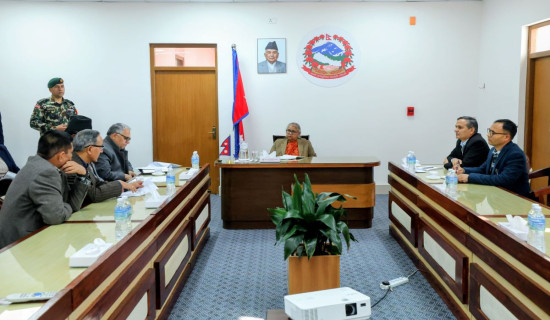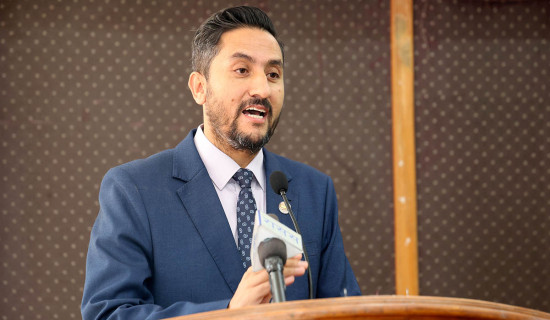- Wednesday, 17 December 2025
Textbooks On Time
The scarcity of textbooks has been a recurring problem that the schoolgoing students are facing particularly in remote areas of Karnali Province. In previous years, students had to begin their academic session without textbooks, frequently relying on outdated materials or missing classes altogether. This situation not only hindered their learning process but also increased absenteeism, depriving them of education. But now, things are improving in Karnali Province. As per the news published in this daily, the Janak Education Material Centre (JEMC) in Surkhet has pledged to distribute textbooks before the commencement of the new academic session. This is a positive development.
With a stockpile of one million books stored in their warehouse, the JEMC has planned a distribution schedule, prioritising the most remote districts to ensure timely delivery. This proactive approach represents a significant stride towards ensuring equitable access to educational resources, irrespective of geographical constraints. By getting books to the remote villages on time, it helps to bridge the educational divide and provide the same opportunities in a better learning environment. Nevertheless, the road ahead is not without challenges. While the distribution schedule aims to send to book in remote districts first, challenges persist in its implementation.
Only a few local levels in certain districts have received their allocated textbook sets so far. This indicates the need for seamless coordination between the distribution centre, local authorities, and educational institutions to streamline the process and ensure efficient delivery. Likewise, the financial dynamics between distributors, businessmen, and schools have attributed for delays in textbook availability for students. The proposition of instituting a coupon system to eliminate these challenges is a pragmatic solution. By simplifying the procurement process and removing bureaucratic bottlenecks, such a system could potentially enhance the timeliness of textbook distribution and alleviate the burden on students and educators alike.
Part of the problem has been the recent change giving local governments to control over textbook budgets. The transition of financial responsibilities to local bodies, coupled with the lack of timely budget allocation, has impeded the smooth procurement of textbooks in certain districts. Strengthening coordination mechanisms between local authorities, educational institutions, and distribution centres would help in mitigating such challenges. The Karnali Province’s proactive approach to prioritising remote areas and distributing textbooks before the start of the academic year sets a praiseworthy precedent that other provinces should follow.
By acknowledging the challenges faced by isolated communities and implementing strategic solutions, Karnali has demonstrated that barriers to educational access can be overcome through collective commitment and coordinated action. Every student has the right to an equitable education, regardless of their geographical location and economic status. They should receive the essential resources they need to nurture their intellectual growth. The concerned authorities should make sure that every child has textbooks in their hands on the first day of school. Receiving their books on time allows students to start learning right away. It shows them their education is valued. One textbook might seem small, but ensuring all students have these key resources makes a big difference.

















